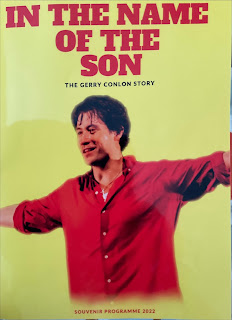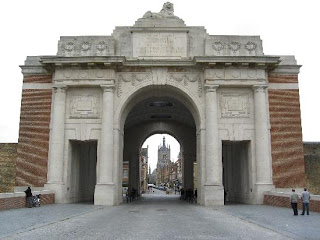Cam Ogie ✍No-one, with the exceptions of the English and not all of them by the way, ever want to see England prevail at any football competition and especially win it.
This play focuses on Gareth Southgate, his past demons, and his managerial career of the Men’s English National football team. His selection through default, was accelerated by Big Sam’s demise from scandal but nevertheless as we are reminded, an England manager with a 100% success record – played one and won one! Southgate being a person who was coaching the England under 21 squad at the time and never expecting the call, was approached initially as a temporary stop gap until the role could be filled with someone more established and ‘experienced’ and more likely to lead ‘club England’ to a final and win!
Unlike old soldiers, ’66’ is never allowed to fade away . . . like its erstwhile sky laden Battle of Britain, the ‘Empires’ descendants are constantly reminded that the ‘Great’ of Britain was attained and maintained by English men . . .with white English surnames such as Charlton, Stiles, Moore and of course Hurst.
This play focuses on Gareth Southgate, his past demons, and his managerial career of the Men’s English National football team. His selection through default, was accelerated by Big Sam’s demise from scandal but nevertheless as we are reminded, an England manager with a 100% success record – played one and won one! Southgate being a person who was coaching the England under 21 squad at the time and never expecting the call, was approached initially as a temporary stop gap until the role could be filled with someone more established and ‘experienced’ and more likely to lead ‘club England’ to a final and win!
Originally tasked with getting a floundering England squad to Moscow for the World Cup, Southgate succeeds and in doing so cements his position as manager. It is from this moment on that the play takes a trajectory away from the pitch and towards the changing room and Southgate’s story and his story for England unfurls. Results do impact but it is in the changing room where Southgate announces his plan and how he intends to implement it. The audience are taken on a journey into the backrooms and changing rooms of England, where hidden conversations are now audible to the public ear.
The squad is introduced. All familiar household names – no longer just the whites of Stiles or Moore but the Empires offspring have come home to roost, Kane, Dyer, McGuire, and Henderson mix it up with Sterling, Rashford, Sancho, Saka, and Deli Alli. Each character is beautiful portrayed with Kane’s and McGuire’s being particularly outstanding. An extreme lack in academic ability being substituted with boyhood honed skills from the streets onto the pitch.
The squad is introduced. All familiar household names – no longer just the whites of Stiles or Moore but the Empires offspring have come home to roost, Kane, Dyer, McGuire, and Henderson mix it up with Sterling, Rashford, Sancho, Saka, and Deli Alli. Each character is beautiful portrayed with Kane’s and McGuire’s being particularly outstanding. An extreme lack in academic ability being substituted with boyhood honed skills from the streets onto the pitch.
Divided and antagonistic towards each other, Southgate breaks down those divisions and imparts the urgency of camaraderie into the squad through his departure from convention. Breaking up established and defined groupings of club players and associations in to multi-club assemblies and discarding the title of ‘boss’ or ‘gaffa(er)’ in favour of the more mundane salutation of Gareth. Winning over the backroom team proves difficult especially when a female psychologist is introduced and at times his ‘plan’ is furiously dismembered and called in to serious question from those above, below and in the stands.
James Graham’s play, highly emotive and highly evocative, simultaneously extracting from the audience tears of laughter and tears of sadness, and based on Gareth Southgate’s role as England manager, is a masterpiece in the frailty of the human species. It portrays the highs and lows of Southgate’s and England’s successes and failures on the pitch, but it is within the confines of the changing room and away from the prying eyes of the paparazzi that Southgate’s skills as manager are cultivated and humanised, where past demons are shared and finally laid to rest. Most importantly it brings the sphere of football management into the realm of humanity – managers really are people!
I, full of historical resentment of any English success, reluctantly went to see a play about an England manager and came away a fan . . . although, the constant reminder of ‘66’ will always make sure I shout for the other team I will now always hold them in deep regard!
My ‘Better Half’, never a follower of football nor never ever a spectator of the sport, but a devout perceiver of theatrical acts, nonetheless, noted to me afterwards that like the lager, this was probably one of the best plays she has ever seen . . . after 30 years I tend to listen attentively for she has so seldom been wrong in her opinion that I can’t actually recall where she has been so!!!! Also, I agree with her on this.
If you get the chance, go see it.
James Graham’s play, highly emotive and highly evocative, simultaneously extracting from the audience tears of laughter and tears of sadness, and based on Gareth Southgate’s role as England manager, is a masterpiece in the frailty of the human species. It portrays the highs and lows of Southgate’s and England’s successes and failures on the pitch, but it is within the confines of the changing room and away from the prying eyes of the paparazzi that Southgate’s skills as manager are cultivated and humanised, where past demons are shared and finally laid to rest. Most importantly it brings the sphere of football management into the realm of humanity – managers really are people!
I, full of historical resentment of any English success, reluctantly went to see a play about an England manager and came away a fan . . . although, the constant reminder of ‘66’ will always make sure I shout for the other team I will now always hold them in deep regard!
My ‘Better Half’, never a follower of football nor never ever a spectator of the sport, but a devout perceiver of theatrical acts, nonetheless, noted to me afterwards that like the lager, this was probably one of the best plays she has ever seen . . . after 30 years I tend to listen attentively for she has so seldom been wrong in her opinion that I can’t actually recall where she has been so!!!! Also, I agree with her on this.
If you get the chance, go see it.
⏩ Cam Ogie is a Gaelic games enthusiast.


























